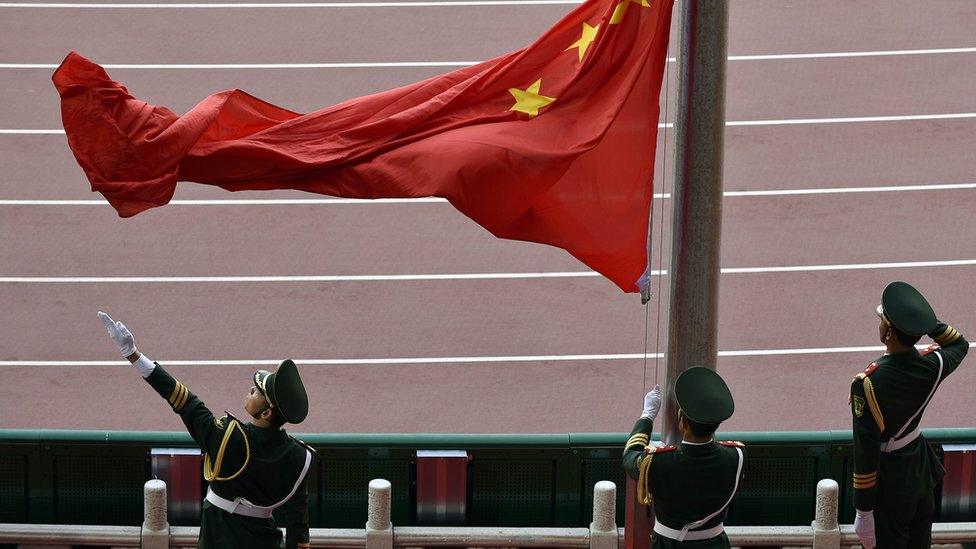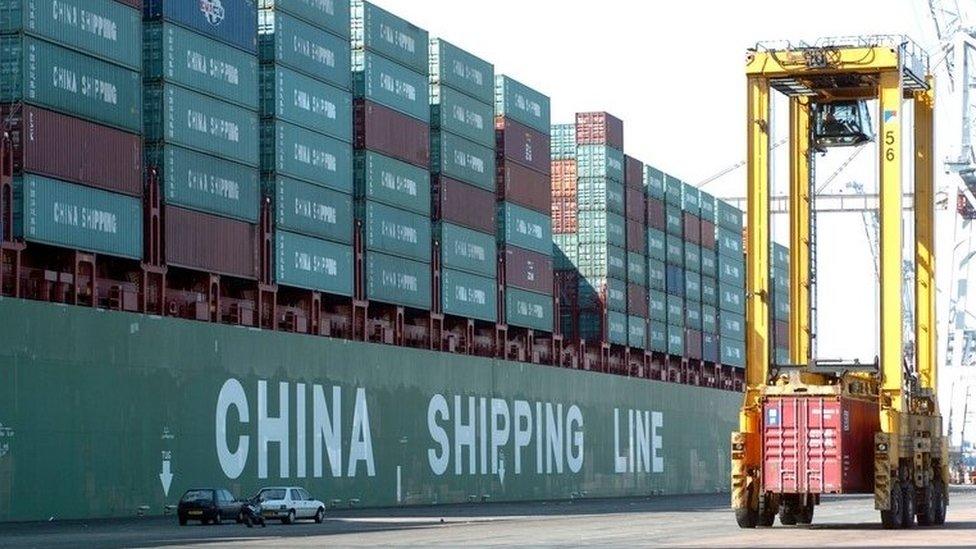The perils of reporting on China's GDP
- Published

Whenever China's GDP figures are released, foreign correspondents fly into action with plenty of analysis about what they might mean.
Does the Chinese economy appear to be stronger or weaker than previously thought?
Where is steel production?
What about the explosion in service industries?
Of course there are the international implications: What do the numbers mean for other economies?
Will Asia's powerhouse look to buy greater volumes Australian iron ore?
Could a growing consumer sector mean more tourists heading to France or Vanuatu?
Then we have to remind ourselves… hang on!
Unlikely but possible
Plenty of economists think that GDP is a massively flawed form of measuring the health of any economy but in this country it is even worse.
There is significant proportion of China watchers who don't believe the GDP figures are real at all.
For example, in 2016, the country's (year-on-year) GDP growth was exactly 6.7% for three quarters in a row.
While this seems numerically unlikely, I suppose it is possible that this could happen.
Yet suspicion regarding growth statistics in the Middle Kingdom is not a new phenomenon.
'Deception'
For years, some provinces are thought to have been artificially inflating their numbers in order to create an appearance of improved economic performance on the part of their local leaders.
Others may have underestimated their growth so as to attract more favours from the national government.
In 2012, when you added the GDP of all provinces together this came to a greater number than the national total.
Now, for the first time, we have official confirmation that GDP here has been fabricated.
According to the Governor of Liaoning, Chen Qiufa, his province has been "involved in a large-scale financial deception" from 2011 to 2014. He said that fake data from city and county level officials misled the central government about the area's economy.
His announcement was made a meeting of the local legislature giving it even more gravitas.

Alternatives?
If China's GDP is not to be trusted then how to judge this country's economic health?
Some analysts turn to electricity consumption or seaborne cargo believing that these are actual measurable indicators of activity expanding or contracting.
Other potential yardsticks could include building construction per square metre or domestic freight volumes.
Using these measures there are those who think that, in recent years, China's actual GDP growth should have dropped much more dramatically from 8% down to more like around 4% rather than just below 7%.
However without solid, reliable figures this remains a debate with wide-ranging, conflicting views.
Mind you, even if at worse China's real GDP growth is around 4% at present, there are plenty of national governments which wouldn't mind a taste of those numbers.